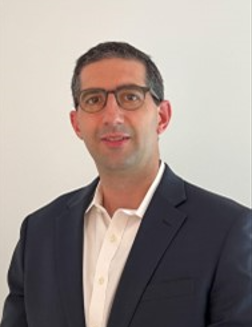Dr Zachary Solomon: The Role of Robotic Assistance in Modern Cardiac Surgery
Dr Zachary Solomon: The Role of Robotic Assistance in Modern Cardiac Surgery
Blog Article

Cardiothoracic surgery exactly like these performed by Dr Zachary Solomon happens to be at the front of medical developments, combining precision, talent, and engineering to deal with conditions of one's heart, lungs, esophagus, and other organs in the thorax. Within the last few decades, that subject has seen innovative inventions and practices which have considerably increased individual outcomes, recovery instances, and over all quality of life, in accordance with Doctor Zachary Solomon.
The Progress of Cardiothoracic Surgery
Cardiothoracic surgery has come quite a distance from its early days. The initial effective center function, executed in the late 19th century, laid the inspiration for an evolving niche noted by rapid advances. By the mid-20th century, the development of the heart-lung unit allowed surgeons to do complicated open-heart procedures. Today, the control keeps growing with continuous study and technical innovations.
Minimally Intrusive Surgery
One of the most amazing breakthroughs in cardiothoracic surgery is the development of minimally invasive techniques. These procedures in many cases are conducted through small incisions, reducing injury to your body and marketing faster recovery. Some crucial minimally invasive techniques include:
• Robotic-Assisted Surgery
• Video-Assisted Thoracoscopic Surgery (VATS
• Transcatheter Aortic Valve Alternative (TAVR
Image-Guided and Computer-Assisted Surgery
Advanced imaging technologies and computer-assisted systems have somewhat increased the accuracy and security of cardiothoracic procedures. Inventions in this area contain:
Enhanced Recovery Protocols
Breakthroughs in perioperative treatment have generated the progress of Enhanced Recovery After Surgery (ERAS) standards, which make an effort to optimize preoperative, intraoperative, and postoperative treatment to boost recovery.
Potential Recommendations
The future of cardiothoracic surgery is promising, with ongoing study into:
• Base Mobile Therapy: Exploring the potential of base cells to fix and recover broken heart tissues.
• Artificial Intelligence (AI): AI-driven analytics may help in analysis, surgical preparing, and result prediction, ultimately causing more customized and successful treatments.
• Nanotechnology: The application of nanoparticles for targeted drug delivery and minimally invasive therapy options.
Realization
Cardiothoracic surgeons like Dr Zachary Solomon Philadelphia remains to force the limits of what's possible in medicine. With the continuous progress of revolutionary techniques and technologies, individuals can anticipate better techniques, shorter recoveries, and greater overall outcomes. The persistent quest for brilliance in this field underscores the commitment to improving the standard of living for people that have cardiothoracic conditions.
Report this page